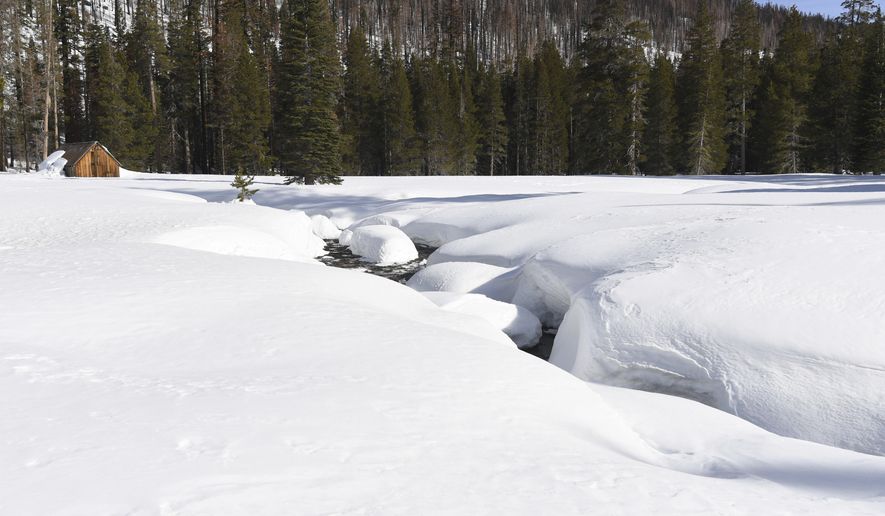An exceptional amount of snow in California’s Sierra Nevada mountain range might signal the end of the Golden State’s lengthy drought.
The Department of Water Resources said the Sierra snowpack was at 205% in Wednesday’s second snow survey of the season, according to KRON-TV, a Bay Area news outlet. State officials also recorded 86 inches of snow depth and a snow water equivalent of 34 inches near South Lake Tahoe — 193% of the average for Feb. 1.
California is outpacing its wettest year on record since the winter of 1982-83. thanks to atmospheric river storms that blanketed the state in late December and early January, DWR snow survey manager Sean de Guzman told the Los Angeles Times.
“It’s exactly what California needs to really help break from our ongoing drought,” Mr. de Guzman said.
The U.S. Drought Monitor moved California out of its two most concerning categories — extreme and exceptional drought — due to the heavy snowfall, according to the L.A. Times.
Still, with the possibility of dryness or warmer rain lingering, officials are waiting until survey results are taken during the snowpack’s typical April 1 peak before celebrating the wet winter.
“California has always experienced some degree of swings between wet and dry, but the past few months have demonstrated how much more extreme those swings are becoming,” said DWR Director Karla Nemeth. “While today’s results are good news for water supplies, we know from experience how quickly snowpack can disappear if dry conditions return in the months ahead.”
Snowpack supplies a third of California’s water supply and is vital to replenishing reservoirs around the state when it begins to melt in the spring.
Republican state politicians have long argued that California’s conditions aren’t the cause of the Golden State’s water issues, but the fault of the poor infrastructure and cumbersome regulation. The combination of the two has let fresh water run into the Pacific Ocean without being captured.
“In the last 25 years, California voters have approved over $27 billion in water resource bonds,” state Sen. Brian Dahle, a Republican, wrote in October 2021. “Yet, within that same timeframe, the state has not built significant new water storage or conveyance systems that would help our statewide water supply. This lack of action, despite voter-approved funding, has led to a state of perpetual drought.”
• Matt Delaney can be reached at mdelaney@washingtontimes.com.




Please read our comment policy before commenting.